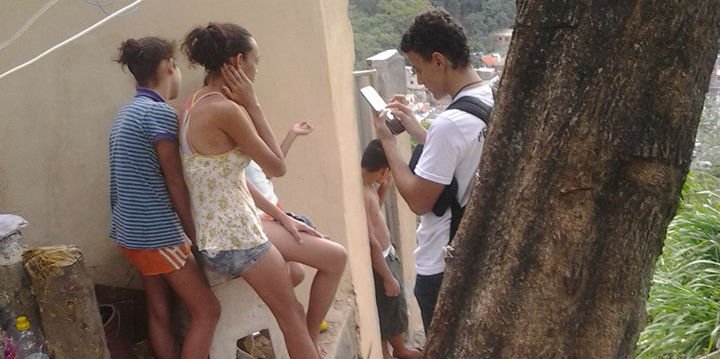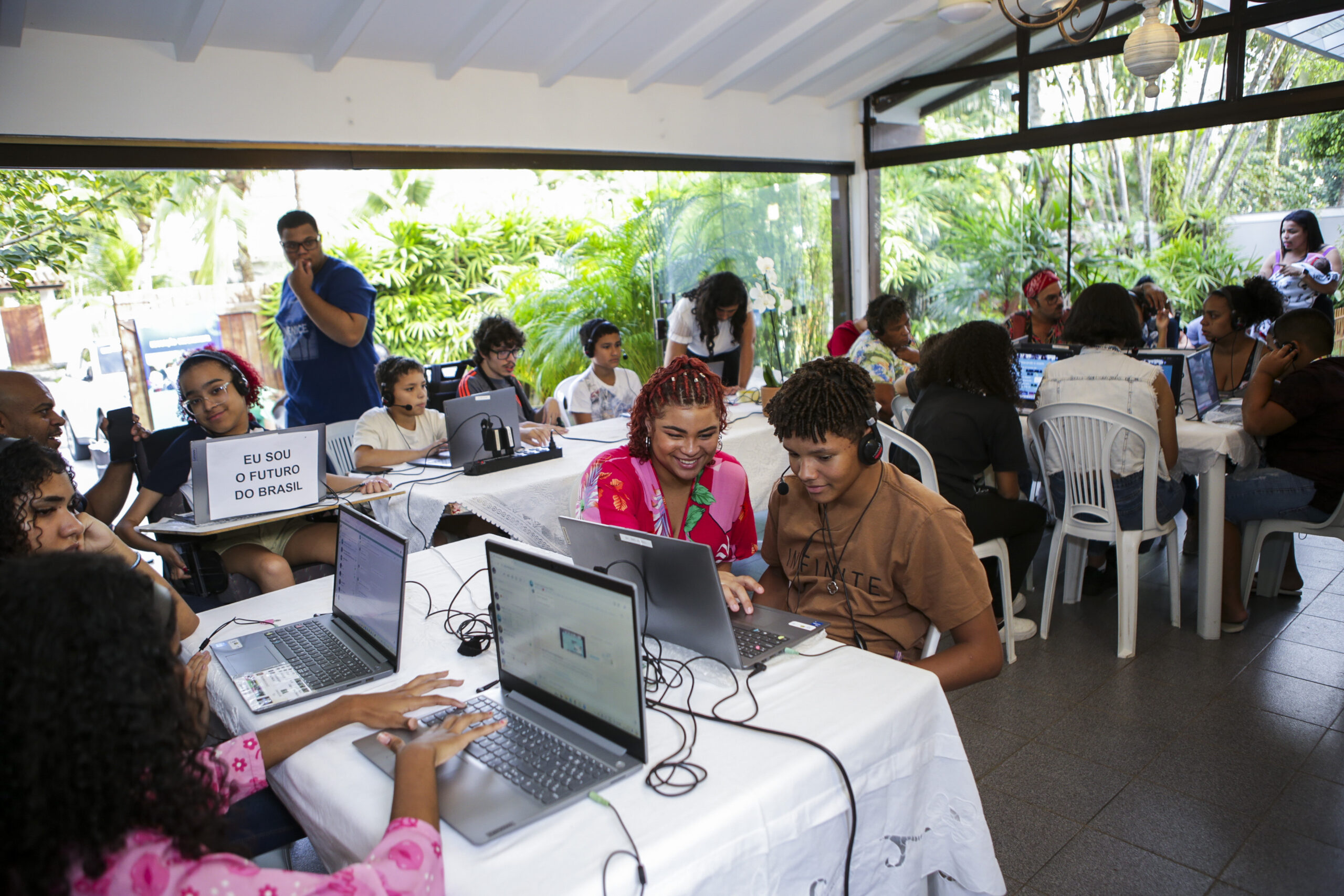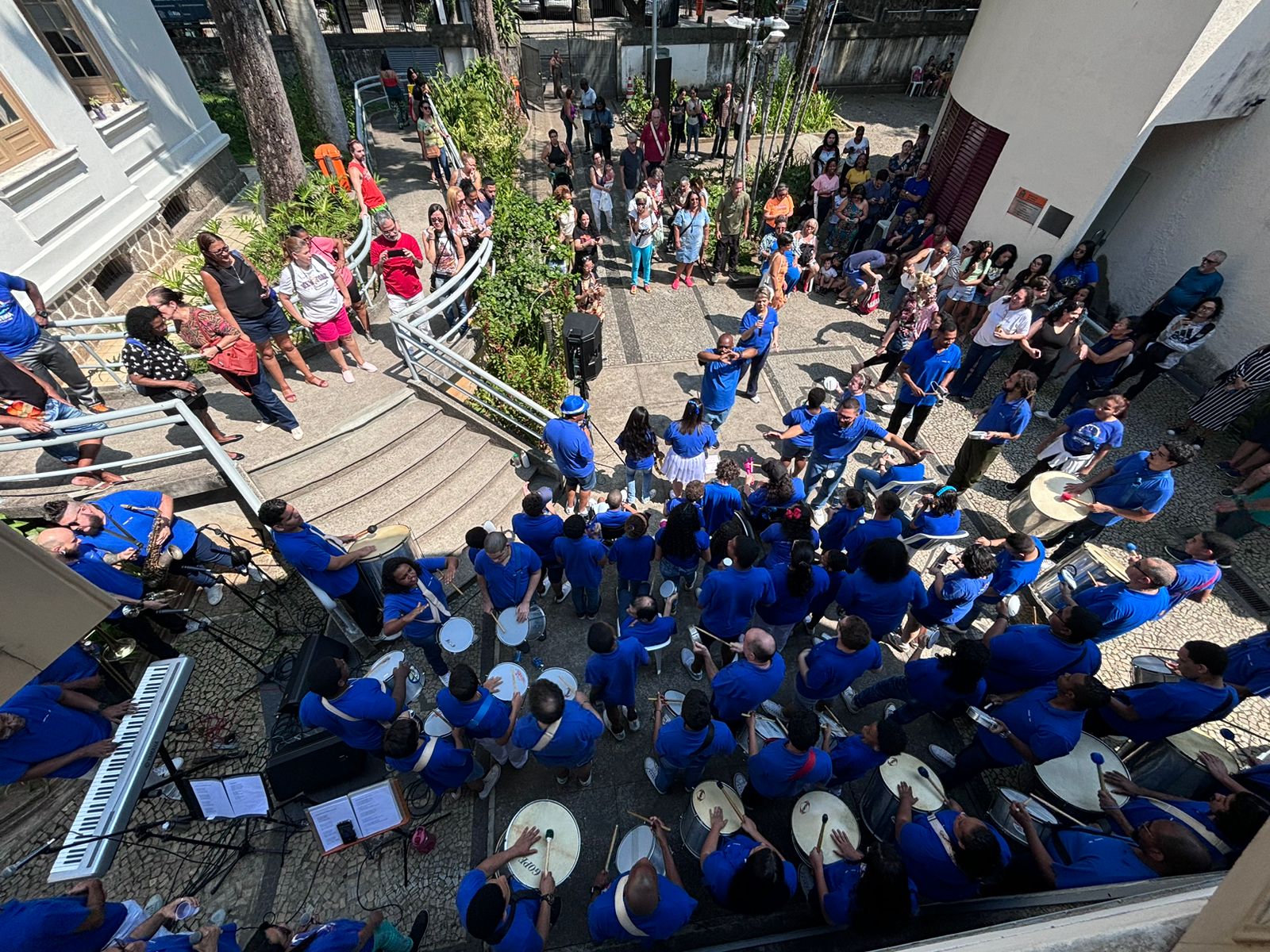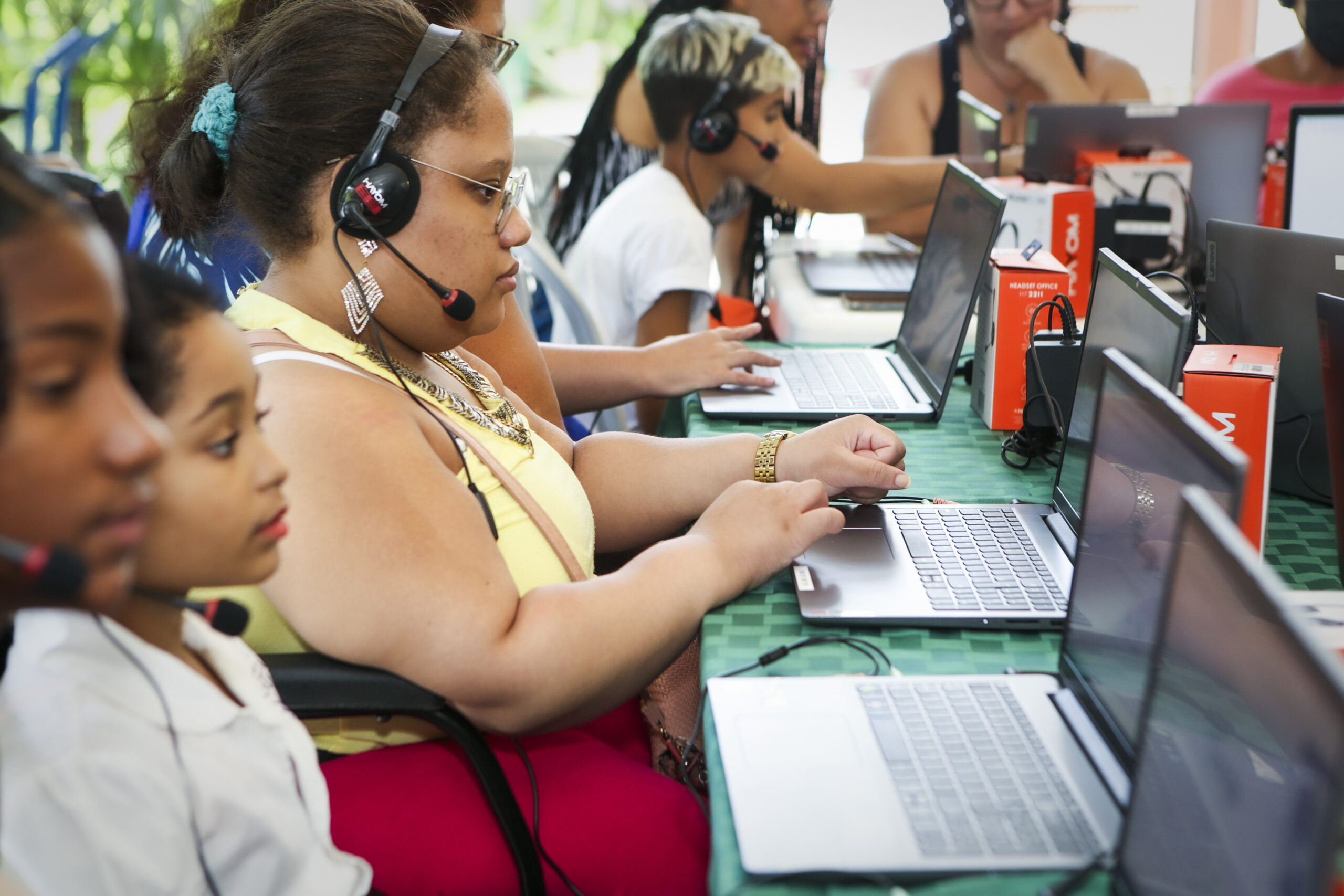
From 2013 to 2016, the project Agentes da Transformação, carried out by Instituto TIM in partnership with Instituto Pereira Passos, collected data about young people from all communities with Pacifying Police Units of Rio de Janeiro-RJ. This broad survey work created a portrayal of youth in the favelas (slums) of Rio de Janeiro and impacted lives of 340 young people selected to conduct the researches. They were trained in field survey and some of them continue to work in social causes – a process started with the work as Agentes da Transformação.
Victor de Andrade Matos, resident of Cidade de Deus, is one of these young people. For him, to be part of the initiative was crucial so he could create, along with friends, two social projects: Escola da Paz (School of Peace) provides extra-curriculum activities on Saturdays and Distribuidores de Alegria (Distributors of Joy) holds parties of Children’s Day, Easter and Christmas, relying on donations. Together, they assist around 500 children in the community. “The project changed my life. If I had not participated, I would not have changed the lives of so many children,” he states.
The 20-year-old young man participated as a scholar in 2013 and was part of the administrative team of the project until 2016. This work made him to know another reality in Cidade de Deus. “I’d always had contact with the external part of my community, but not with its inner part. I had no idea that in the place I lived could exist areas so poor and so abandoned by the society,” he says. Victor, now a Physical Education student and working at an ice cream manufacturer, intends to continue with social projects after graduated.
Eduardo Rosa, 23 years old, who was also a scholar in 2013, says the experience changed his professional life. In addition to overcome shyness when talking to people from Formiga community, the field survey method contributed to his second professional experience, as a mobilization assistant in the program Caminho Melhor Jovem, from the state government of Rio de Janeiro. The program, which ended in 2017, sought to mobilize and listen to young people in favelas of the state to offer courses, cultural events and opportunities to meet their demands. “We had to have a field dynamics to call young people, and I could sail it through because of the work I did with Agentes,” he states.
Currently, Eduardo studies Social Service and has also started social projects for young people – a desire that arose from Agentes. Along with other people from the community, he created Polo Cultural Arte Jovem and is responsible for the contest Rainha da Favela (Favela’s Queen), with activities related to fashion to empower young people from communities. In addition, he recently opened a ballroom dance project in Formiga, produces an online magazine about young culture in the favelas and is writing a book with stories of young people who became representative in communities of Rio de Janeiro. “Today, I am still a transformation agent,” he says.






































































































